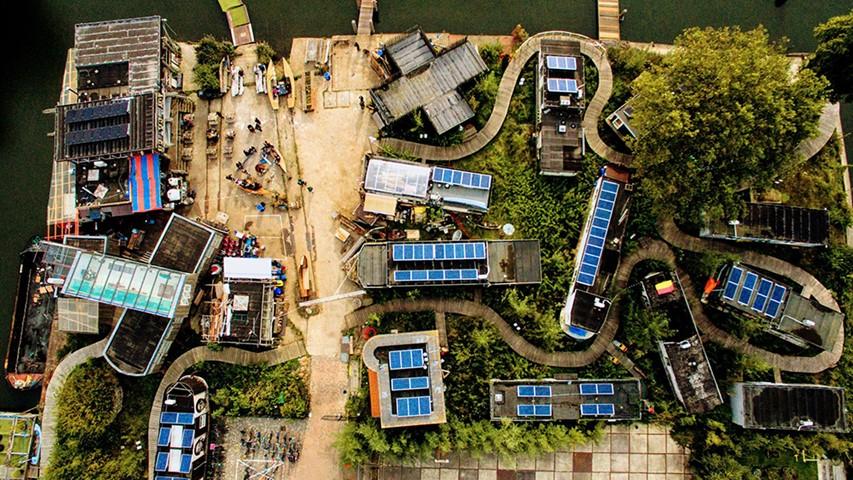
What can we do with old industrial sites?
Nicholas Karachalis from Greece believes that bold experiments in the New European Bauhaus spirit already exist. He shared through our website the example of De Ceuvel in Amsterdam.
An ambitious urban experiment: The heavily polluted grounds of a former shipyard have been completely transformed and upcycled second-hand houseboats have been turned into green office spaces for creative & social enterprises.
Nicholas says, "We are inspired by De Ceuvel & would like to see such experiments take place in Greece too, where some of the environmental conditions are easier."
But what is De Ceuvel really?
They say it's a city playground for innovation, experimentation & creativity where they aim to make sustainability tangible, accessible & fun. The concept was developed to stimulate new ways of thinking about managing resources in local communities. It responds to ambitious sustainability targets in an engaging educational manner. It showcases how to get value out of what many people view as waste.
It is situated in the old industrial area Buiksloterham & is a pioneer in transforming a polluted zone into a sustainable residential area.
Due to the pollution of the ground in the area, it was impossible to dig to lay a sewage system. Instead, each boat is equipped with a compost WC. Waste is collected and pre-composts in the toilets before it is brought to the tumbling composter for further composting.
Each office boat has a heat pump & an air-to-air heat exchange ventilation system. As warm air leaves the boat, over 60% of the heat is captured and circulated back in.
De Ceuvel has been built primarily out of recycled materials. Old houseboats have been upcycled into creative, energy-efficient workspaces, using second-hand materials from all over the Netherlands.
It is equipped with over 150 Photovoltaïc panels that generate energy from the producing around 36.000 kWh of power yearly.
Their greenhouse is the key to recycling nutrients. It produces vegetables & herbs for their Cafe using a closed-loop aquaponics system combining fish & vegetable production
? © De Ceuvel
Details
- Publication date
- 12 May 2021
